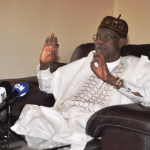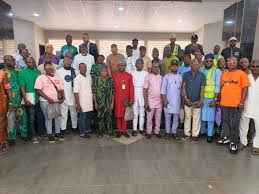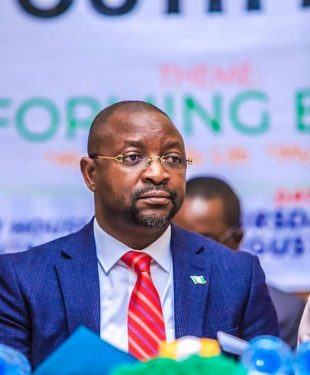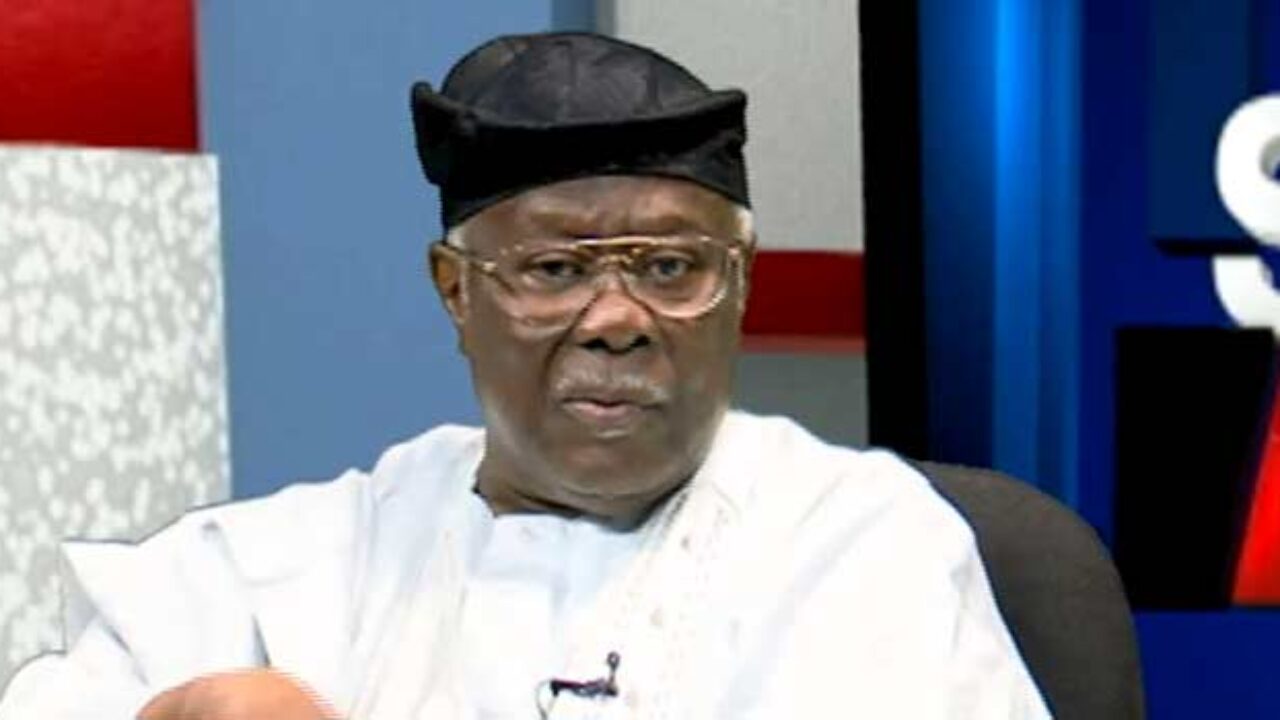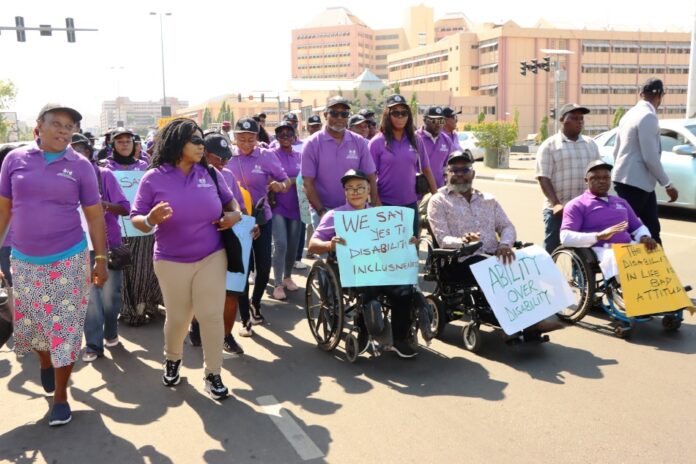Power: Anxiety as FG sets to borrow fresh $3bn

…N5.864trn spent so far by OBJ, GEJ, Buhari to rejuvenate sector with little to show
…Stakeholders bemoan unimpressive power supply, demand improved supply
…Our challenges, by TCN, GenCos, DisCos
There is anxiety across the country following the Federal Government request of a fresh $3 billion loan from the World Bank to reform the power sector.
Stakeholders, however, believe that the apprehension among Nigerians is because of the rise in Nigeria’s debt, which currently stood at N25.7 trillion as at the end of June 2019, according to the latest figure of the Debt Management Office (DMO).
Minister of Finance, Budget and National Planning, Mrs. Zainab Ahmed, while speaking with the newsmen on the sidelines of the just-concluded World Bank/International Monetary Fund (IMF) meetings in the United States, explained that there is a proposed $2.5 billion to $3 billion facility for the power sector development programme in Nigeria,
which will include the development of the transmission networks and the distribution networks as well as removing the challenges that the nation currently have in the electricity sector.

But the most worrisome about the fresh $3 billion loan request is that despite the huge investments to develop the power sector over the last 20 years, it has yielded little or no result.
For instance, the Nigerian government, between 1999 and 2010, reportedly spent over N4.7 trillion on power. Eight years later, former President Goodluck Jonathan and President Muhammadu Buhari administrations invested another N1.164 trillion, totalling a whopping N5.864 trillion,
which many industry stakeholders have referred to as investments into the sinkhole through capital releases, because Nigerian homes, offices and factories remained in the darkness.
It is worthy of note that Nigeria generates its power via four main sources – hydro, gas, coal and natural gas. But for about 20 years, huge unverified money has been expended into the sector.
Specifically, N1.164 trillion was released to the power sector as capital budgets from 2011 to 2018, yet the power sector has not measured up, as epileptic power supply still prevails.
Electric power often generated is not commensurate with the huge investments. And returns on investments have largely been discouraging as the Federal Government continued to pump in more resources in terms of budgetary allocations, loans among other interventions to ensure the nation meets its energy need.
The Energy report shows that N6.52 trillion was spent on Nigeria’s power sector in 16 years after the military regime with no significant improvement.
For example, ex-President Olusegun Obasanjo, the report said, allegedly spent N3.52 trillion ($16 billion) during his tenure, though this figure has been contested.
Also, late President Umar Yar’Adua was said to have spent N1.183 trillion, while the former President Goodluck Jonathan during his administration reportedly expended N1.817 trillion and President Muhammadu Buhari reportedly spent N1.5 trillion in two years, as at September.
Meanwhile, findings by The ICIR revealed that between 2011 and 2018, the Office of the Accountant General of the Federation released the capital sum of N1, 164,278,006,846 for power projects in the country.
This huge sum, however, excludes capital releases to six agencies between 2016 and 2018 namely, Office of the Surveyor-General of the Federation, Federal School of The survey, Oyo, Federal Road Maintenance Agency (FERMA),
Council for the Regulation of Engineering in Nigeria (COREN), Surveyor Council of Nigeria and Regional Centre for Training in Aerospace Survey when Buhari-led administration merged the power ministry with works and housing.
In 2018, the Transmission Company of Nigeria (TCN) secured a total grant of $1.6 billion from international donors-World Bank, the African Development Bank (AfDB), Japan International Cooperation Agency (JICA), among others for its Transmission Rehabilitation and Expansion Programme (TREP). Likewise, the French Development Agency committed $170 million for the Abuja Transmission Ring Scheme.
The World Bank gave $486 million to upgrade most of the transmission substations through its Nigeria Electricity Transmission Access Project (NETAP), Ogun-Lagos Transmission Project supported by JICA with $238 million, AfDB $300 million and 25 million Euros for the Northern Corridor Transmission Project,
another $410 million AfDB Nigeria Transmission Expansion Project among other non-lending supports. Most of these projects are either being implemented or at the procurement stage, thus, not fully completed.
For instance, the contract for the screening of 132KV lines NETAP project has been signed while the consultant is billed for mobilisation before the end of the year. The $170 million Abuja transmission ring project is being implemented.
In terms of grants, TCN got 25 million Euro non-lending support from the EU as part of funds to realise Northern Corridor Solar project, $13 million grant from the
The Japanese government through JICA for capacitor bank installation in Apo and Keffi, while the other $21 million grant also from JICA is to rehabilitate and upgrade Apapa road 132KV substation and 330KV Akungba substation.
“TCN is in discussion with JICA on more grant support from Japan,” the document from TCN read. It cannot, however, be established if these funds are part of the N1.5 trillion the current administration claimed it has spent on power in two years.
Comrade Princewill Okorie, APPA National President, in his speech delivered in July, in Abuja, further disclosed that about $35 million was set aside for the Afam East Power Projects and the sum was allegedly spent by Federal Ministry of Power officials without any undertaking any feasibility study.
“Out of the $1 billion Eurobond, $350 million was given to Nigeria Bulk Electricity Trading Company in 2014. $29 million was purportedly paid to General Electric for turbines while $6 million was paid to others.”
However, in June, the EFCC announced the possibility of probing the power projects, especially those awarded during Obasanjo administration. This ultimately is to unravel the complexity and alleged corruption that has enmeshed the sector.
Despite the estimated sums so far invested in the sector, stable, uninterrupted power supply to Nigerians remains difficult to realise.
Experts as well as other stakeholders have blamed this on poor investments, capacity and regulatory issues among others. While Nigeria can conveniently generate up to 20,000 Mega Watts (MWs), the transmission has the capacity for about 8,000MW and distribution is still struggling between 2,000 and 4,000MW.
Speaking in an exclusive telephone chat with The Daily Times over the weekend, Head, Corporate Communication, Ikeja DISCO, Felix Ofulue, said that the public must understand that DisCos can only share what they get from the national grid.
Ofulue said the ability of DisCos to discharge their responsibilities is a function of what they get from the national grid because what they get is what they distribute.
On the challenges confronting DisCos, he said energy theft and reluctance to pay bills make it difficult to service the value chain.
“Reluctance to pay bills is a big issue. You can attribute it largely to the fact that it is a function of trust. Some people don’t trust their bills because we give them estimated bills.
So, in that case, they don’t pay up to 50 per cent of what they are owing. So, you find out that it is difficult to service the value chain because it is what you get from them that you pump back into the value chain.
“Another big challenge is energy theft. It can come in different forms but the issue is, as long as you are not accountable for energy that you use, that is energy theft,” he said.
Executive Secretary, Association of Power Generation Companies (APGC), Dr. Joy Ogaji, said that pumping money into the power sector is not the solution.
According to her, the power sector lacks leadership and coordination, noting that the right structure must be put in place to before the Federal Government starts pumping money into the sector.
“We need to solve the foundational problem. We need to have a strong corporate governance regulation or code for the sector so that everybody will do what is right.
We don’t have leadership and coordination in the power sector. Anybody will just wake up and decide something and nobody can call them to order.
“Before government starts pumping in money, let us put the right structure in place. There should be a regulation for the billing and collection of the money, “she explained.
She however noted that the Nigerian Electricity Supply Industry (NESI) was faced with various challenges.
According to her, the Generation Companies, GenCos, were mostly at the receiving end of the challenges in the sector.
“Despite the challenges, the GenCos have over 7,500 MW available capacity. There had been a 75 per cent increase in power generation since the GenCos took over in 2013”, she said.
Ogaji added that the unclear implementation of payment agreements to the GenCos by the market participants was affecting the GenCos ability to pay their gas suppliers.
This, she said, had resulted in huge liquidity challenge to the GenCos.
Meanwhile, the Managing Director of TCN, Usman Mohammed, had traced the problem of unstable power supply to poor power distribution network.
He said even though Nigeria is a major supplier of electricity to neighbouring countries like Chad and the Republic of Benin, it suffers unstable electricity while the countries it supplies electricity enjoy stable electricity.
According to him, the problem of power distribution in Nigeria has denied consumers of electricity the joy of stable electricity.
He, however, harped on the need for power distributors in Nigeria to be recapitalised to enable them to meet the financial requirement in the power sector.
This is just as the companies identified loss of equipment worth millions of naira to vandalism, theft of materials such as cables, transformers and wires as part of the challenges hindering steady power supply in the country.
He, however, stressed the need to press for the expansion of the distribution network, adding that DisCos need to be recapitalised to enable them to have the commensurate investment.
“If we don’t do that and you look at the expansion we are doing now on the grid in terms of transmission, you will realise that they are not picking what we transmit properly.
“For example, between Ogun and Lagos, we are putting three 330kV substations and we are putting two 132kV substations. If there is no investment on the part of the DisCos, how will they pick the load from that place?
“They need to build their injection substations and feeders to pick the load. That is what we are saying”, he added.
On his part, the Chief Executive Officer, Association of Nigerian Electricity Distributors (ANED) the umbrella body of DisCos, Mr. Azu Obiaya, lamented that the electricity supply industry in Nigeria was recording a loss at a growing rate of N1.3 billion daily.
“Nowadays, the average operational capacity of the grid that hovers around 4,500 Megawatts (MW) and 5,500MW cannot meet the needs of a growing population and industrial users,” he said.
He added that power distribution companies have to recapitalise before the country can have a stable electricity grid.
Meanwhile, experts have submitted that solving the problems of the power sector in Nigeria will require an effective synergy of legislation and governance as well as conscious effort to demonstrate political will.
They advocate adequate funding and restructuring of the power sector to achieve the relative stability in electricity generation and distribution.
The ex -Director-General of National Institute for Legislative Studies (NILS), Ladi Hamalai, stated that the commitment of the leadership of the 9th National Assembly to give priority attention to the power sector is important.
“The de-industrialisation in Nigeria is as a result of the state of power supply. Power sector is so important, once we get it fixed, Nigeria will experience rapid, accelerated and sustainable development that would be comparable to developments in other jurisdictions,” she said.
Also, Abuja based lawyer, Tunde Oladipo, called for a conscious effort to exercise and demonstrate the political will to solve the challenges facing the power sector.
Suspend planned charge on USSD access, FG tells MTN, others
He argued that the Electric Power Sector Reform Act, 2005 is an all-encompassing Act, promulgated to “provide for, among others, the development of competitive electricity market; the establishment of the Nigerian Electricity Regulatory Commission, NERC; the licensing,
and regulation of the generation, transmission, distribution and supply of electricity; the enforcement of such matters as performance standards, consumer rights and obligations; the determination of tariffs among other matters”.
Given the aforementioned challenges, electricity distribution companies are calling on government to create an enabling environment to ensure cost recovery to further drive investments in the nation’s power sector.
Similarly, the former director-general, Consumer Protection Council, Dupe Atoki, called for the immediate abolition of estimated billing and the passage of Competition Law.
She also urged distribution companies to scale-up public education and enlightenment.
Other proposals include the need to raise the bar of enforcement, arguing that the penalties are unrealistic with current realities.


